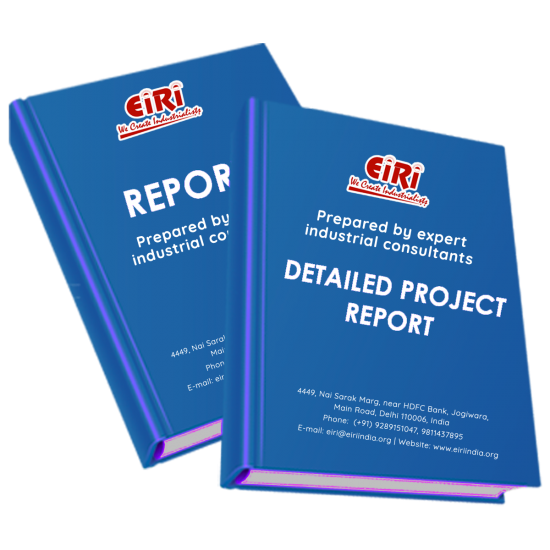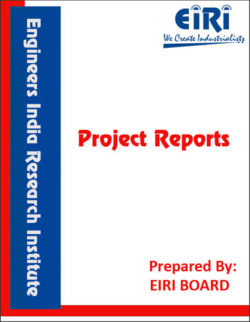The project report includes Present Market Position and Expected Future Demand, Market Size, Statistics, Trends, SWOT Analysis and Forecasts. Report provides a comprehensive analysis from industry covering detailed reporting and evaluates the position of the industry by providing insights to the SWOT analysis of the industry.
Rising awareness among consumers about the deteriorative effects of unhealthy, chemical-based products on the health is pushing them to opt for natural and organic products. Peanut oil is considered to be one of the healthiest cooking oils, as it is free from trans-fats and contains high levels of vitamin E and unsaturated ‘good fats’, which help control cholesterol and enhance heart health. This is one of the major reasons for health-conscious consumers to prefer peanut oil over other plant-based oils. Increasing concerns for the environment is also a factor contributing to increased preference for premium organic products such as peanut oil.
The peanut is a species in the family Fabaceae (commonly known as the bean, pea or legume family). Peanut Oil, also known as, Groundnut oil or arachis oil is a mild tasting vegetable oil derived from peanuts. Groundnut oil is a kind of light yellow transparent edible oil with clear color and lecture, pleasant fragrance and good taste, is relatively easy to digest.
Peanut oil contains more than 80% unsaturated fatty acids (including 41.2%oleic acid and 37.6%linoleic acid). It also contains 19.9% of palmitic acid, stearic acid, arachidic acid and other unsaturated fatty acids. The fatty acid composition of peanut oil is relatively good, therefore it is easy for human bodies to digest and absorb.
The peanut is an annual herbaceous plant growing 30 to 50 cm (1.0 to 1.6 ft.) tall. The leaves are opposite, pinnate with flour leaflets (two opposite pairs; no terminal leaflet) each leaflet is 1 to 7 cm (% to 2% in) long and 1to 3 cm (% to 1 inch) across. Peanuts have high oil content (45% – 52%) compared too many other oil seed crops.
Peanut plants continue to produce flowers when pods are developing; therefore even when they are ready for harvest, some pods are immature. In order to maximize yield, the timing of harvest is important. If it is too early, too many pods will be unripe; if too late, the pods will snap off at the stalk, and will remain in the soil. For harvesting, the entire plant, including most of the roots, is removed from the soil. The pods are covered with a network of raised veins and are constricted between seeds.
Peanut oil is gaining popularity as a key ingredient in cosmetics and pharmaceutical products. Crude peanut oil has a high content of vitamin D & E, and also has antioxidant properties, which makes it an excellent ingredient in soap and other skincare products. Peanut oil has a high-fat content, which makes it an excellent base for massage oils. Various cosmetic manufacturers use fortified peanut oil as an emollient in skincare and hair care products.
Cosmetic manufacturers are making appealing soaps, serums, and other products using flavoured plant-based oil with its nutrients retained. The moisturizing characteristics and anti-aging feature of high-oleic oils are the key reason for their increasing use in cosmetic products.
Peanut or groundnut oil is a well-established product with a historically high use in several Asian foods and cuisines. It is used either as a base for cooking (cooking oil) or to enhance the flavor of the underlying food.
Peanut de oiled cake is generally a safe feed for all classes of livestock. The use of groundnut de oiled cake has no general limitations in Livestock/Animal feeding. Groundnut De oiled cake has been used as a protein supplement in Cattle Feed, Poultry Feed, Piglet Feed, Aqua/Fish Feed.
Peanut butter is a food paste or spread made from ground, dry-roasted peanuts. It often contains additional ingredients that modify the taste or texture, such as salt, sweeteners, or emulsifiers. Peanut butter is a protein packed spread popular around the world. It’s made of ground peanuts – often roasted first – blended into a thick paste.
Peanuts have considerable nutrients and are consumed in different forms all
over the world since long. Peanut butter is one such product consumed in large quantities especially in western countries since many years. It is not very popular in India and the domestic market is dominated by milk butter. Hence, the promoters must target growing export market and should be financially sound. The technology is available indigenously and it is advisable to engage a technical consultant to ensure quality.
Peanut butter is served as a spread on bread, toast, or crackers, and used to make sandwiches. Peanut butter is a food paste or spread made from ground, dry-roasted peanuts. It commonly contains additional ingredients that modify the taste or texture, such as salt, sweeteners, or emulsifiers. Peanut butter is consumed in many countries.
It is intended to prepare a Feasibility Report to install 30000 Tons/Year Peanut Processing Facility as a Green Field Project for the production of Peanut Oil, Peanut Deoiled Cake, Peanut Shell and Peanut Butter.



